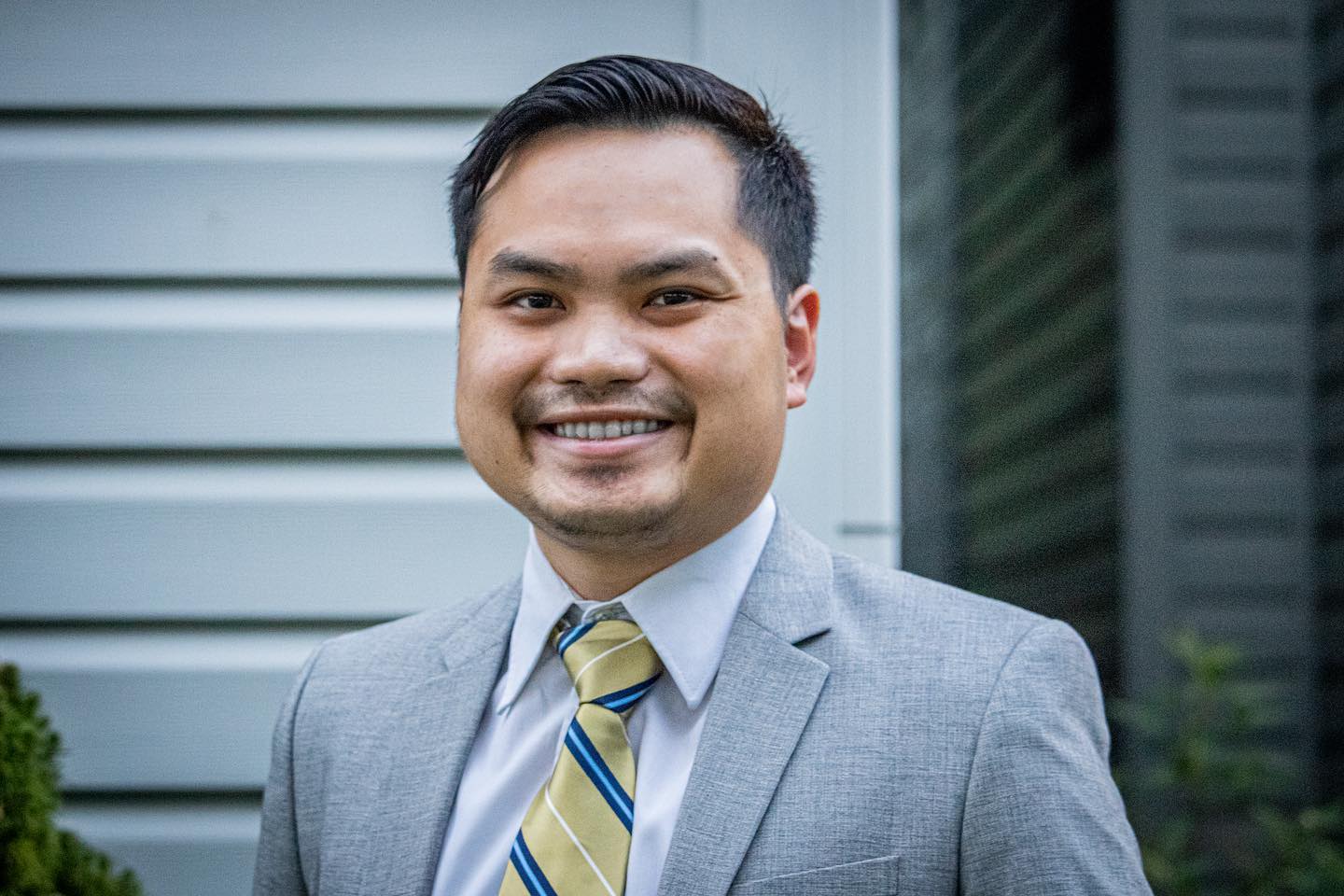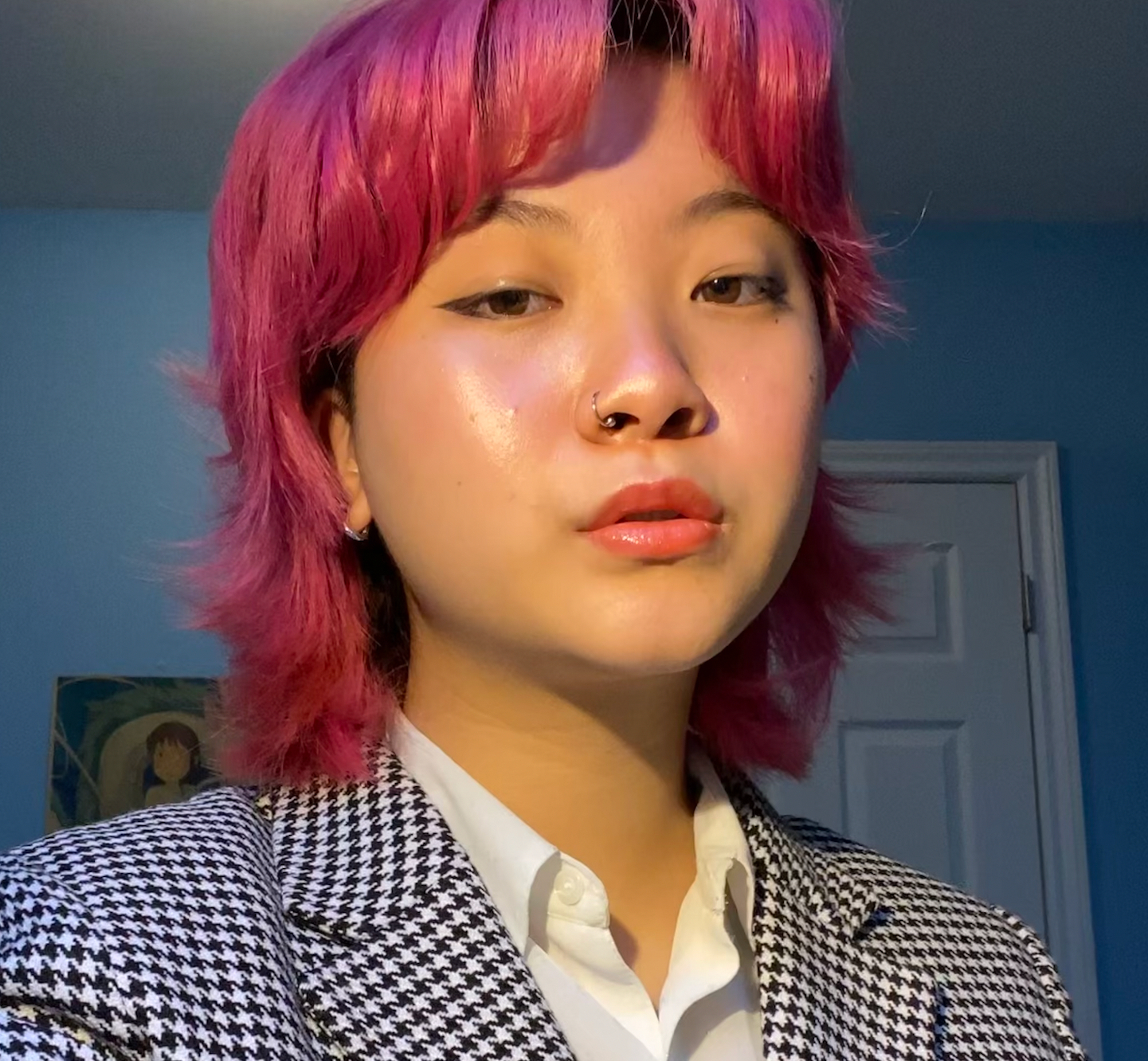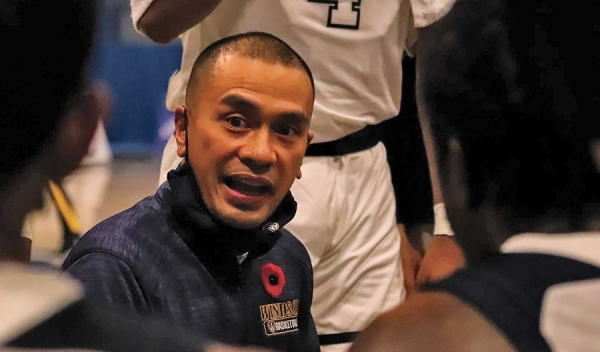Although Asian Heritage Month was celebrated earlier, 2022 marks 20 years since the Government of Canada formally designated May as Asian Heritage Month.
Further acknowledging the importance of the Asian diaspora to our society, May was also declared South Asian Heritage Month in Ontario in 2001.
"Asian Heritage Month is an opportunity recognize the historical role Asian Canadian communities played in nation-building as well as their current impact on Canadian society" - Marium Tolson-Murtty, UWindsor Director of Anti-Racism Organization Change.
In celebrating, we must also acknowledge the rise of anti-Asian hate and the long-standing history of systemic racism and discrimination. In Asian Canadian history, exploitation and a lack of basic human rights have too often plagued the experience of those of Asian descent. We are challenged to do better by reflecting on this history.
In honour of Asian Heritage Month, the University of Windsor has invited members of its community to contribute their voices to a series sharing their experiences. A reminder for all Canadians is served by the 2022 theme: “Continuing a Legacy of Greatness,” urging us to come together to combat anti-Asian racism and discrimination in all its forms.
Additionally, Leddy Library curated a reading list to provide a sliver of insight into the diverse Asian-Canadian experience. The books are by Asian-Canadian authors and cover a range of themes and styles. There are memoirs of growing up Chinese in Canada, experiencing hockey as a South Asian, finding a sense of identity in a multicultural society and more. All the books are available through the Leddy Library catalogue: Leddy Library Asian Heritage Month Reading List
The “Continuing a Legacy of Greatness” series is posted below and will continue to grow each week of May. As we listen to the stories of Asian voices, we acknowledge that they are essential to our past, present, and future:
Continuing a Legacy of Greatness: Tony Vo

"As we kick off Asian Heritage Month, I had the opportunity to reflect back on my experiences as an individual who identifies as Southeastern Asian. I am Tony Vo and I am the Student Experience Coordinator for the Faculty of Arts, Humanities and Social Sciences (FAHSS) and this is my Asian Heritage story.
I was born in Vietnam and came to Canada on November 15, 1999 at the age of three. Growing up, I’ve always had a connection with my Asian heritage and I’m proud of it because it has made me who I am today. I thoroughly enjoy being with my family during Lunar New Year. It’s a time for celebrations, gatherings, and happiness. A day to celebrate the new year and to forget about the past. I remember eating Vietnamese che troi nuoc (sweet rice balls in sweet soup) during the Lunar New Year. I also remember wishing my grandparents and relative blessings to receive a red envelope filled with money. These were the fond memories of my childhood growing up in a Vietnamese family.
The Vietnamese culture, beliefs, and social values that I was taught while growing up has been engraved within me, especially understanding the great value of a university education. I was extremely happy to see that these values are being highlighted through recent media such as Shang Chi and Turning Red.
Being the Student Experience Coordinator, I am in the role of supporting students and my culture has really influenced how I work with students, especially the appreciation of a university education. My parents has taught me the value of being an independent learner, but also the belief of believing in myself and my abilities when I was younger and that’s something that I’ve passed onto my students whom I worked with. I’m extremely proud of my heritage and I’m happy to share it with my students, mentors, and colleagues around the University of Windsor."
Continuing a Legacy of Greatness: Yu Fei Qin

My name is Fei (my full name is Yufei Qin), and it’s 秦裕斐 in Chinese script. My major is in Communications, Media, and Film with a minor in Political Science. I’m born in Beijing, China, and my parents immigrated to Canada when I was one.
I’m proud of my family heritage since they’ve been through so many adversities – coming to a foreign country and hoping to build a better place for themselves. I’m proud to come from a place where beauty exists in so many ways – in the rivers, in the mountains, in the temples, and in the places where history stood still. Maybe I’m romanticizing China in my head a little, but to me, the architecture back at home doesn’t compare to Canada’s.
A time where I’ve felt a strong connection with my ancestral home is when my mother and I make dumplings before the New Year. I’ve been speaking Mandarin less, and less, especially now that I’ve moved out, but I like that I can still have conversations with my mom. To be honest, crafting foods and eating authentic Chinese cuisine are the times when I feel closest to home.
The aspects of Asian culture that I enjoy sharing with others are sharing food and new restaurants! I love making dumplings from scratch and introducing new snacks to friends. Sometimes I feel like the only thing that’s Chinese about me is my face, but my language, the food I grew up on, and my connection with my family are what reminds me of my roots.
Continuing a Legacy of Greatness: Siu Ling Le

Siu Ling Le, Marketing Coordinator, Continuing Education. My ethnicity is Canadian-born Chinese-Vietnamese.
Being Canadian-born, I only know very little about my heritage from what my parents have taught me. I am proud of the values that my parents instilled in me from a very early age: respect your elders, take opportunities, value education, and work hard. They helped me understand the opportunities that I have now is a direct result of their years of hard work and overcoming obstacles to fulfill their dream of raising a family in a welcoming, and safe community. Before my two sisters and parents immigrated to Canada in the late 1970s, they had to overcome many challenges, from staying in refugee camps to the family being separated for a long period of time. Because of these life experiences, my parents were able to provide for us (my sisters and me) the opportunities that they never had. They subconsciously taught me to never miss an opportunity to work hard and to learn along the way, as they did when they were my age.
On a side note, I submitted this photo because I've noticed that there are many ways that Asian parents show affection without actually saying the words 'I'm proud of you, I love you'. Growing up, those words were few and far between, but I always felt it. The photo represents just one example. This was in 2019 when I was running a 5K at the Maryvale Night Run. I was new to running, so I trained for weeks just to be able to run 5k. The day of the race, I was nervous, but to my surprise, my parents and one of my sisters showed up to cheer me on! I had only mildly mentioned this event to them. My dad took photos of me as I crossed the finish line. Then, we grabbed bubble tea as a treat! I'll never forget this day. This picture captured the very moment where you could see 'I'm proud of you, I love you' written all over their faces. In that moment, I felt all the love and care they put into raising me and my sisters all these years.
When I visited Vietnam for the first time when I was the age of 15. I had the opportunity to meet my mom’s best friend since childhood and her daughter that is around my age. I also was able to meet my uncle (mom’s brother) for the first time before he passed away. I felt such a sense of belonging because I was able to physically see my extended family for the first time and how we resembled each other! I was able to learn about the place my parents called home for most of their life and was able to experience their way of life. They all welcomed me as if they had known me since birth. I realized at that time that ‘home’ is truly wherever family is.
Besides the delicious food, I would share some of the music and movies I enjoyed. I'm sure there are some people who have seen the movie The Departed starring Matt Damon, Leonardo Di Caprio and many well-known Hollywood actors. I would let fans of this movie know that it is the American adaptation of the original Hong Kong action-thriller, "Infernal Affairs". I would encourage others to check out the original starring Andy Lau and Tony Leung (who was also cast in the recent Shang-Chi). Because I am fluent in Cantonese, I really enjoyed music from Hong Kong (Canto-pop) growing up. We enjoyed the pop tunes of Jackie Cheung and Hacken Lee, just to name a few.
As a fairly new employee to the University, my interactions with fellow colleagues have been absolutely amazing. I feel safe in expressing my thoughts, bringing forth ideas, knowing that my colleagues will listen with open minds, without the judgement of my ethnicity. I also appreciate the continued efforts made by the University to recognize equity, diversity, and inclusion as an integral part of building an inclusive community, with the goal of being a progressive, innovative, and forward-thinking organization.
Continuing a Legacy of Greatness: Anita Hu

Anita Hu, Neuroscience student, Chinese-Canadian (born and raised in Canada).
I am proud of my family heritage because it is filled with values and emotions that I want to remember and hope to honour in my lifetime. Of course, there is amazing Chinese food! There are classic dishes, such as stir-fried noodles and blue crab, that I hope to learn how to make from my family. In general, a core value that I hold based on my culture is family. My parents moved to Canada on very limited resources to study, work, and provide for both their current family in China and future children in Canada. Like my parents, family ties me to my past and makes me hopeful of the future. I am proud to share this value. Furthermore, through my upbringing in Canada, I think my core value has extended from family to welcomeness overall. My heritage and upbringing have taught me to create a positive, welcoming environment wherever I may be, and it's my honour to embody that.
My parents, brother, and I try to visit Shanghai as often and long as we can, which is usually once a year in the summer for three weeks. It's not a lot of time, but the limit really encourages me to take in as much as I can from the trip. My favourite feeling in the world is sitting in my Ah-Bu's ("Grandma" in Shanghainese) apartment with my parents, brother, aunts, uncles, and cousins all crammed into the 3-in-1 bedroom/living room/dining area just catching up and talking about the past. I especially love hearing the stories of the neighborhood they all grew up in and the shenanigans with four kids in the family and more kids all around the block. Through these stories, I realized how pretty much all of my family history lay in Shanghai and in China, and I was never exposed to any of this growing up in Canada. I wasn't raised with close family (other than the few years as a baby when my grandparents stayed with us in Canada), so it was nearly impossible to create these extended bonds or learn of my ancestry. As my parents were the first in the family to emigrate, I don't have the experience of "weekends with Grandma" or frequent big family dinners that my friends here may have, but that only makes me seize the rarer moments with my family even more.
One aspect that I love sharing about Asian culture is the FOOD! Asians spend so much time preparing, cooking, and sharing food with their friends and family. I have so many fond memories of helping my grandparents make steamed buns and wontons from scratch, and watching in awe as my mom cooked dishes upon dishes of food for the holidays and even on regular days as she bustled about in the kitchen after coming home from work! I hope to share these food experiences with my own friends and peers because these moments really brought me closer to my family. Also, interestingly, I think the architecture in China is worth sharing with others. It's so unique and different from the grasslands and plains that I'm surrounded by in southwestern Ontario, and I find that the buildings and structures in China directly reflect the cultural movements that took place in the country. Ancient dynasties, where one King ruled above all and lived lavishly, paved the way for elegantly designed buildings, temples, and gardens that people now still call kingdoms. The aftermath of the Cultural Revolution with huge surges in industrialization led to a terrifying amount of skyscrapers in mega cities, such as Shanghai and Guangzhou. The history of China is sculpted right into the cities' landscapes, and I would love to show others these aspects of my ancestry in person if the opportunity comes.
I sometimes see myself as a minority in a room, but I try not to let that affect my mood or intentions. In my family, we tend to value humility, bowing and saying thank you, and not causing too much of a stir for others. So it can be hard for me to express myself in ways other than what I was taught. It can also be scary for me to share my culture to strangers because I don't know how they'll take it. For example, I've been hesitant at potlucks to share new food because it feels like a different side of me that I may not show otherwise. The clothes that I wear and the way I talk are a product of my environment in Canada, yet my thoughts, actions, and values within are largely a product of my Asian family. I try to hide this balancing act, but it still is an internal struggle that I face, and I thank everyone for accepting me for who I am outside and in.
Continuing a Legacy of Greatness: Chris Cheng

Having to break through barriers himself has made Lancer men’s basketball coach Chris Cheng determined to serve as an example for other aspiring Asian coaches.
“I think that it's not very common to see, you know, a 5-foot-7 Asian head coach on the sidelines at the post-secondary level,” he said. “I’m Filipino, so there are Filipino leagues, and you see Filipino coaches and Filipino people playing the sport and sharing their passion. But I think outside of that, it’s not very common to see.”
Now in his third year as Lancer head coach, Cheng is the subject of a profile for Basketball Canada written by Holly MacKenzie in recognition of Asian Heritage Month.
She notes that Cheng’s very presence on the sideline is helping to shift the idea of what a head coach looks like.
“I didn’t allow other people to tell me that I couldn’t do it,” Cheng said. “Parents are saying to me: ‘Wow, that's amazing that you’re a Filipino head coach, this is cool.’
“I really don't think about it so much, but I know I have to be more aware of it. I think it just opens up doors. I want to open up doors for people of the Asian community to say, look, you know, you could do anything. It’s not just sport. Get into uncommon places and make it common.”
Contact: AROC@uwindsor.ca

